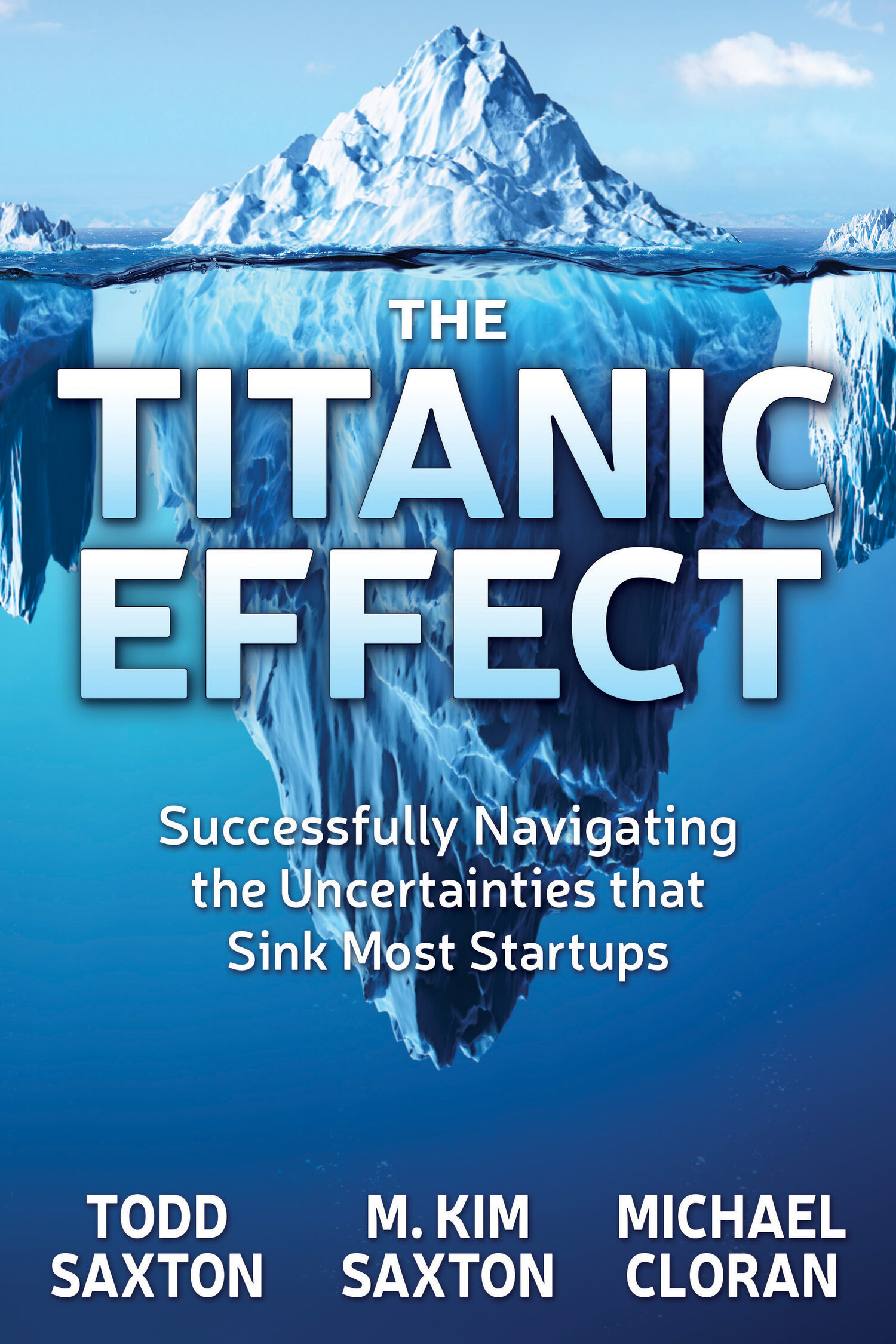Guest Blogger: Jenni Edwards Burton
In the book, The Titanic Effect: Successfully Navigating the Uncertainties that Sink Most Startups, there are numerous analogies drawn and lessons learned from the wreck of the RMS Titanic and how hidden debt can be accumulated through a series of early (and often seemingly simple) business decisions. After years of being in and near the startup world, many of these lessons resonate with me on both an intellectual and emotional level.
In my 20s, I would write business plans with overflowing optimism and believed on a visceral level that entrepreneurship and “founder status” was in my future. However, I now am in a place where the experience and painful lessons have a near paralyzing effect on me setting sail. I have to imagine I am not alone and it makes me think about all of those businesses and ideas that never got the chance to succeed.
While the Titanic story has numerous parallels to startups, a glaring difference is the risk (and subsequent loss) of human lives. Most businesses are not directly responsible for human lives, so without this weighty responsibility in play, when is the right time to set sail and launch your business? How do you make sure you understand the debts you are accumulating but also welcome them with open arms as they are almost always necessary to get a business launched? In other words, when the hidden debts are brought into the light, they can lose the power to intimidate you.
Awaiting the Right Time to Set Sail
The reality appears to be in deciding which debts are the best for you and your business. Just like in personal finance, some debts are more acceptable depending on where you or the business might be, your goals, and your appetite for risk. So to my fellow will-be-entrepreneurs that have yet to set sail, let’s decide on which debts we are willing to take on, keep our eyes open to those debts, set sail and experiment, and then adjust as we test the waters.
Why we asked Jenni Edwards Burton to write a blog for The Titanic Effect:
We first met Jenni when she had made the transition from a startup to the corporate world of Simon Malls. And yet, she had several side hustles, like Indy Spectator and Citybox. A stint at Herff Jones and it was time for startups again – Clear Scholar followed by Pattern 89. Jenni has proven sales, marketing and social media skills. She was the first person to read the Marketing Ocean chapter. We thought it fitting that she should be our first guest blogger. Thank you, Jenni.


